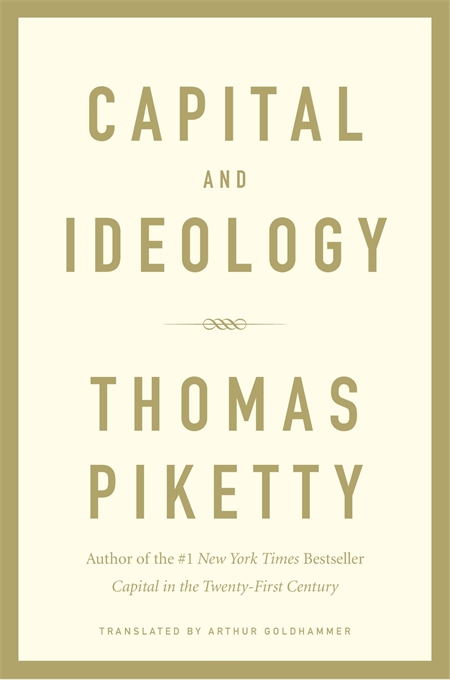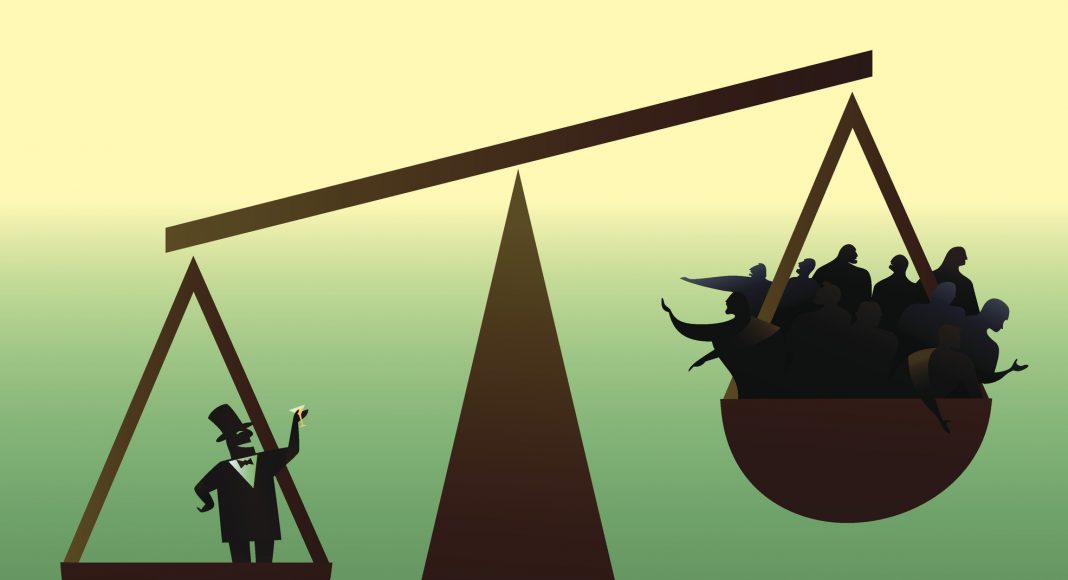As part of the Stigler Center’s Political Economy of Covid-19 Series of online programming, which explores the economic and political implications of Covid-19 with leading academics and experts, we hosted a discussion between Piketty and Chicago Booth professor Robert H. Topel. The discussion was moderated by the Financial Times’ US national editor and columnist Edward Luce. Watch it here.
Six years after Capital in the Twenty-First Century made him a household name worldwide, Thomas Piketty followed it up with Capital and Ideology, a staggeringly ambitious 1200-page tome that provides a sweeping historical overview of how, throughout history, inequality has often been driven and reinforced by ideology and political structures. “Inequality is neither economic nor technological,” he argues, “it is ideological and political.”
As part of the Stigler Center’s Political Economy of Covid-19 Series of online programming, which explores the economic and political implications of Covid-19 with leading academics and experts, we hosted a discussion between Piketty and Chicago Booth professor Robert H. Topel. The discussion was moderated by the Financial Times’ US national editor and columnist Edward Luce.
You can watch a video of the discussion here:
You can also download Piketty’s full slide deck here and Topel’s full slide deck here.

On Thomas Piketty
Thomas Piketty is a professor at the Paris School of Economics and the director of studies at Ecole des Hautes Etudes en Sciences Sociales (EHESS). He is the author of numerous articles published in journals such as Quarterly Journal of Economics, Journal of Political Economy, American Economic Review, Review of Economic Studies, Explorations in Economic History, Annales: Histoire, Sciences Sociales, and of a dozen books. He has done major historical and theoretical work on the interplay between economic development, the distribution of income and wealth, and political conflict. In particular, he is the initiator of the recent literature on the long-run evolution of top income shares in national income (now available in the World Inequality Database). Piketty is co-director of the World Inequality Lab and the World Inequality Database, and one of the initiators of the Manifesto for the democratization of Europe. He is also the author of the international best-seller Capital in the 21st Century. @PikettyLeMonde
On Robert Topel
Robert H. Topel is the Isidore Brown and Gladys J. Brown Distinguished Service Professor of Economics at Chicago Booth. Topel conducts research on many areas of economics including labor economics, industrial organization and antitrust, business strategy, health economics, energy economics, national security economics, economic growth, and public policy. He is the co-director of the Energy Policy Institute at the University of Chicago. Topel and fellow Chicago Booth faculty member Kevin Murphy won the 2007 Kenneth J. Arrow Award for the best research paper in health economics, among other accolades. He is a Research Associate of the NBER, an elected member of the Conference for Research on Income and Wealth, and an elected founding member of the National Academy of Social Insurance. He has held visiting and research positions at a number of institutions, including the Board of Governors of the Federal Reserve, the World Bank, and the Rand Corporation. He also authored several books and more than 70 articles and monographs in professional journals.
Edward Luce
Edward Luce is the US national editor and columnist at the Financial Times. Before that, he was the FT’s Washington Bureau chief. Other roles have included South Asia bureau chief, Capital Markets editor, and Philippines Correspondent. Luce was previously the speechwriter for the US Treasury Secretary, Lawrence H. Summers, in the Clinton administration. He is the author of three highly acclaimed books, The Retreat of Western Liberalism (2017), Time to Start Thinking: America in the Age of Descent (2012), and In Spite of the Gods: The Strange Rise of Modern India (2007). He appears regularly on CNN, NPR, MSNBC’s Morning Joe, and the BBC. @EdwardGLuce






